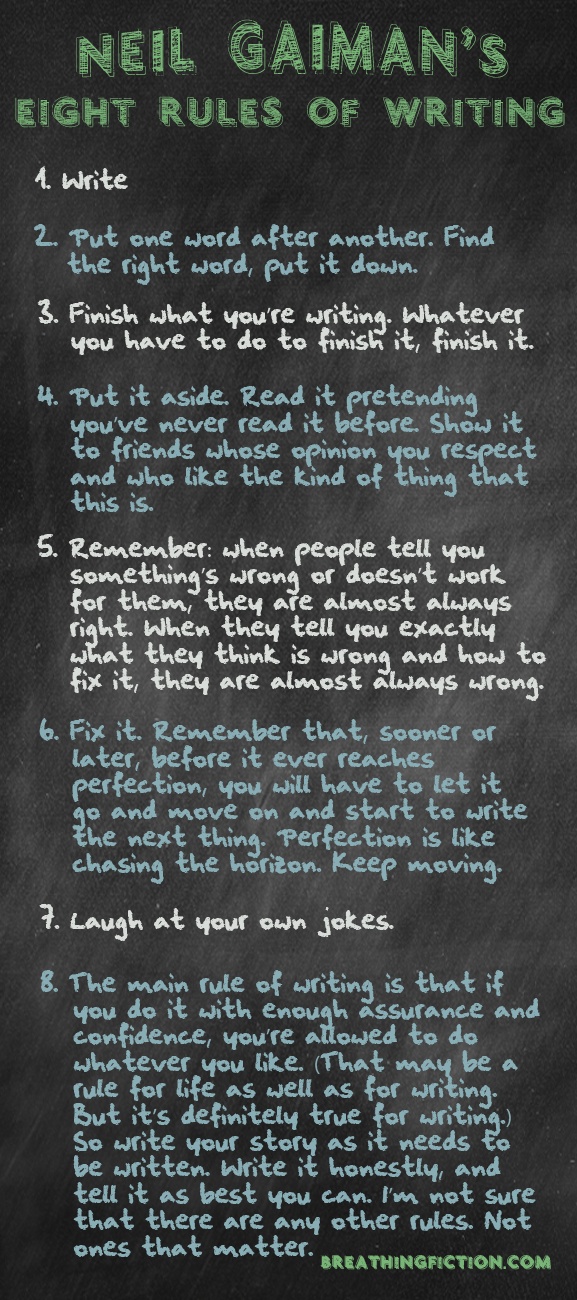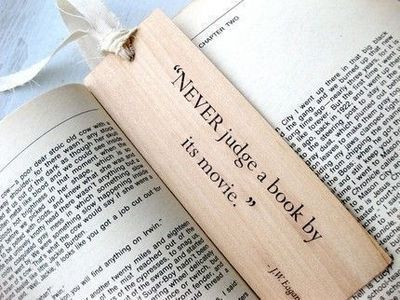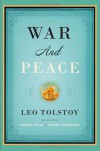Inguling
As cunning as a fox who's just been appointed Professor of Cunning at Oxford University.
My Sister's Keeper

“It's about a girl who is on the cusp of becoming someone. A girl who may not know what she wants right now, and she may not know who she is right now, but who deserves the chance to find out.” - My Sister's Keeper
My Sister's Keeper is the story of the Fitzgerald family, Brian and Sarah and their three children. Kate, who suffers from leukemia, Jesse who's a pyromaniac and Anna who was conceived to save Kate's life. The story starts shortly before Anna goes to meet with a lawyer, Campbell Alexander, to obtain medical emancipation from her parents because she doesn't want to donate a kidney to her sister after having been in and out of hospital all her life donating organs for Kate. Campbell takes her case on and the result sends the Fitzgerald family into turmoil. Sarah is furious with her daughter, Brian questions again wether they did the right thing, constantly asking things of Anna.
“Do you know how sometimes - when you are riding your bike and you start skidding across sand, or when you miss a step and start tumbling down the stairs - you have those long, long seconds to know that you are going to be hurt, and badly?” - My Sister's Keeper
The story is told from the point of view of Anna, Kate, Jesse, Brian, Sarah, Campbell and Anna's guardian ad litem, Julia. While I initially liked the flashbacks in the story that served to tell the backstory of Sarah and Brian's anguish of discovering their daughter was ill and how they came to have Anna it grew annoying. At some point during the second half of the novel they started to drive me crazy. The book would be in the middle of a present day scenario or conversation that you wanted to know the end of when the chapter cuts to a random flashback. It was just too much.
“Sometimes to get what you want the most, you have to do what you want the least.” - My Sister's Keeper
What I liked most about this book was Anna and her story, a young girl with an enormous responsibility trying to figure out who she is if she stops doing what she was essentially born to be. I also loved Campbell Alexander, hiding a secret, and continuously joking when people ask him why he has a service dog when he's not blind. His quips of "I'm a recovering alcoholic. The dog gets between me and a beer." or “He’s a chick magnet” were a welcome laugh in this otherwise sad story.
I really wanted to love this book. I liked the idea of exploring the issue of savior siblings and telling the story from many points of view was a great way to do that. However, this book ultimately disappointed me and that's why I think it has taken me so long to write a review, I really had to think how it had disappointed me. I can't say how or why because I'd spoil the ending for anyone who wants to read it but for the first time in my life I actually find myself liking the movie adaptation better, mainly because of a different course of events. Ultimately the ending led me to drop a star, instead of four I'm only willing to give it three.
12 Books I Plan to Read in 2014
I've spent the past two weeks toiling for two finals in law school. Let's just say it was depressing. Depressing to spend that much time apart from my darling Kindle (Hansel for anyone who wants to know) and depressing because my finals proved the age old rule of law school: It doesn't matter how much you study, eventually it all goes to shit.
While I studied for my exams the only reading joy I had was planing future reads. After watching a video from Words of a Reader on youtube where she goes through the 12 books she wants to read this year, one for each month I presume, I decided to do the same, only I settled for six because some of them are big. Just for 2014 because I don't see much reading happening until I finish my semester in December. Of courseI plan to read much more in 2014 but these are my must reads, the ones that have been put off for too long and now deserve my attention.
So without further ado, here they are. Drumroll please.
First of all are a few big ones I've wanted to read forever but have put off, daunted by their size.
1. War and Peace

I've wanted to read this for the longest time and having finally finished Anna Karenina, which I loved, I think it's time to tackle this one.
2. The Tale of Two Cities

My first Dickens. Looking forward to this!
3. Gone With the Wind
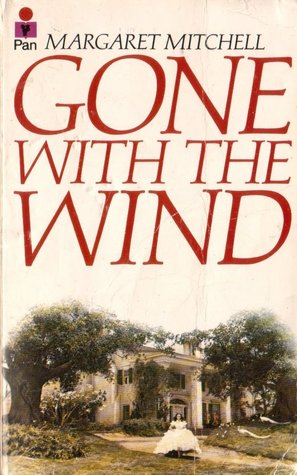
Ah, Scarlett, Scarlett, Scarlett. I've seen the movie and loved it. As I go by the rule that books are usually better than the movie this one should be good.
4. Atonement

Again I saw the movie but didn't really follow it, maybe I just wasn't in the mood to watch it that night. But I'm intrigued and I've only really heard good things about the book. So on the pile it goes!
5. A Moveable Feast

My first Hemingway. I don't really know why I picked this one, just did.
6. One Hundred Years of Solitude
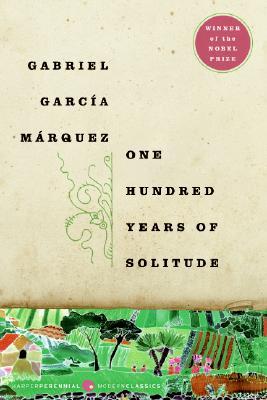
So there. My 6 books. I do realize it's only October, but sue me, I'm a Virgo and I like to plan ahead and make lists, especially when I should be studying for exams.
 1
1
Anna and the French Kiss

This was a sweet little read, one of the better YA romances I‘ve read. Set in Paris it centers around Anna Oliphant whose parents drop her off at a boarding school in Paris. Although I didn‘t find it wholly believable that parents would do that without more motive than to widen the teenagers horizon and then scoff because the aforementioned teenager had gotten snobby because she started drinking decent coffee.
Besides Anna‘s parents reasons to send her to Paris I would have liked Perkins to put a little more stuffing into the characters. Obviously Anna and her main love interest get the most attention but there were other characters, involved in the plot or subplots of their own, which seemed a little one dimensional. For instance, the mean girl in school is apparently just mean because there is a mean girl at every school. The only thing I know about Anna‘s best friend is her name, that she likes big words and that she plays drums and considering that she is involved in the main plot I would have liked to know her and her motives a little better. Other characters are similarly plain and could be described simply; the artistic slacker, his girlfriend, the girl who enjoys soccer…
“The only French word I know is oui, which means “yes,” and only recently did I learn it’s spelled o-u-i and not w-e-e.” - Anna and the French Kiss
Anyway, Anna is in a foreign city, far away from home and doesn‘t speak the language, naturally she is freaked out. Thankfully she finds friends soon who help her break out of her shell. While I get that Anna was in a foreign city and a bit freaked out but she was remarkably uninterested in her surroundings and scared to venture out into the city on her own to explore. Having been in Anna‘s shoes I can honestly say that Paris isn‘t quite that scary nor confusing. If you‘re afraid of getting lost Anna, buy a map. Unless you‘d rather wait for some hot guy to take notice of you and show you around personally. Suit yourself.
“Boys turns girls into such idiots.” - Anna and the French Kiss
Naturally some love triangles ensue, this being a teen romance novel. Of course the main love interest has an English accent. Don't they all. It‘s a little more than a love triangle however, or two, and naturally results in drama. It was a little too much drama for my taste but then I backtracked and remembered what it was like being seventeen/eighteen and everything seemed like the end of the world.
“Seriously, I don't know any American girl who can resist an English accent.” - Anna and the French Kiss
The book was well written and I enjoyed it but it didn‘t really surprise me much, it was pretty predictable from beginning to end.
Bunheads

"I'm a dancer in the corps de ballet, just one of the dozens of girls who dance in graceful unison each night. My mother thinks I'm a star, but she's biased." - Bunheads
In my mind any work of fiction about ballet, be it book, movie or a tv show, always features one of the following tired and old plots (sometimes both):
a) girl with a real passion for ballet doesn't have the right body for it.
b) ballet girl must choose between the world of ballet or the real world (usually there's a guy involved).
"We rehearse in old leotards, threadbare tights, and torn leg warmers. We rarely buy new dance clothes because we know that most ballet careers are short-lived." - Bunheads
Although Bunheads falls squarely in category b it was still a good book and not as cliched as some ballet themed books (or movies) can get. The fact that Flack is a former dancer herself gives the narration a certain credibility and she does write a good book. It follows Hannah, a corps de ballet dancer at the prestigious Manhattan Ballet (supposedly modeled on NYCB where Flack was a dancer for several years) and her friends and acquaintances in the ballet. It centers around a time in her life where she begins to doubt how much she is willing to continue giving up for ballet while at the same time underlining how much she loves to perform and her ambition to be promoted. The characters were interesting and I especially enjoyed that the girls who danced with Hannah weren't labelled as "the bitchy one", "the goody goody" and so on. Hannah's relationship with best friend/sometimes rival was complex and I found it refreshing that two girls co-existing in such a competitive atmosphere could actually be happy for each other or comfort one another even though they might be competing for similar roles.
I wasn't a massive fan of the love interest, in my mind he came off as an inconsiderate jerk but thankfully he wasn't the only thing on Hannah's mind. He was really the only character in the book I found one-dimensional.
On the whole I really enjoyed this book, it was a quick and easy read but still more than just the usual chick lit I'll forget about tomorrow.
Emma
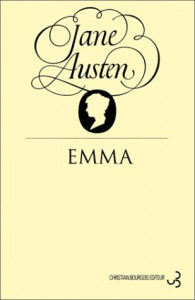
“And have you never known the pleasure and triumph of a lucky guess? I pity you. I thought you cleverer; for depend upon it, a lucky guess is never merely luck. There is always some talent in it.” - Emma
In my mind it seems a bit superfluous to review a book of Jane Austen’s but in this case I want to write down a few notes about Emma. I love Jane Austen books and Emma is the fourth that I have read. Up until now I would say that Pride and Prejudice is my favourite with Sense and Sensibility in second place while Mansfield Park is my least favourite. But Emma might just rival Pride and Prejudice in my mind and the reason is Emma herself. I find the character of Emma quite fascinating She is flawed and sometimes inconsiderate and annoying but in her I can see a lot of myself.
Jane Austen commented that in Emma she would write a heroine that no one but she would like. I don’t agree with that statement for I like Emma.
“Were I to fall in love, indeed, it would be a different thing; but I have never been in love; it is not my way, or my nature; and I do not think I ever shall.” - Emma
In short the book centers around a young woman in regency England. Austen sums her up at the beginning of the novel in being rich, clever and handsome which seem to be the best characteristics for a regency woman in Jane Austen’s world to have. Emma is certainly blessed but she is also unexperienced, sheltered and bored. She has been the mistress of her father’s house from a young age when her sister married and after her governess marries and moves a very short distance she is left alone in the house with her hypochondriac father. Her boredom is alleviated when she meets a young woman from the town’s boarding school, Harriet Smith, who essentially becomes Emma’s plaything, or at least her love life does. Harriet Smith is very pretty but also a bit dim and very naive. Though Emma herself professes that she will never marry she takes great interest in making matches for the people around her with Harriet at the centre often leading one to think: “poor Harriet.”
“One half of the world cannot understand the pleasures of the other.” - Emma
A major theme in the book is position in society and the consequences of inequality of rank and social status in marriage or friendship. Emma is at the top of Highbury society while Harriet, an illegitimate girl with unknown parentage, is certainly not. Emma decides to lift Harriet’s status as she is certain that she is the daughter of a gentleman.
I’m not going to say much more about the storyline itself, in case any reader of this review hasn’t already read it, but I will say that the reason Emma ranks as one of my favourite Jane Austen books is because of the gradual change in Emma, she grows up a little bit, sees errors of her ways, learns to better herself and is willing to change her mind about people. I will end by saying I thoroughly recommend Emma to anyone who is interested in Jane Austen.
The Bell Jar

“To the person in the bell jar, blank and stopped as a dead baby, the world itself is a bad dream.” - The Bell Jar
I’ve struggled against reading the Bell Jar for the longest time probably because I found it’s cult following and fame a little bit daunting and unapproachable. For some reason, the time was right a few weeks ago to crack it open and start reading and, boy, do I not regret that decision. It was only after I had finished the book that I came to know that people liken this book to Catcher in the Rye. I would like to start this review by saying that they are nothing alike. If I had known of the comparison before reading the Bell Jar I probably wouldn’t have picked it up. For me, Catcher in the Rye was about a boy who didn’t want to grow up. The Bell Jar on the other hand is about a young woman on the cusp of adulthood who struggles with the mounting pressure of choosing what society expects of her or choosing what she wants to do.
“The trouble was, I had been inadequate all along, I simply hadn't thought about it.” - The Bell Jar
Esther Greenwood is a college girl in the 50’s. All her life she has been an A student, has won awards and scholarships, including one to college and a competition to be a guest editor for the summer at a magazine in New York, which is where the story first picks up.
“I was supposed to be having the time of my life.” - The Bell Jar
Esther starts questioning her life so far and where she will go from here, it’s the summer before her senior year at college and the glittering New York life doesn’t seem to be all that she hoped it would be. Between describing the goings on of the pack of girls employed at the magazine for the summer she talks about past events, especially how her relationship with Buddy Willard came to be. Buddy is supposed to be the perfect man: handsome, smart, a future doctor. At first, before she really knew him, Esther thought he was that ideal man. But she comes to resent Buddy’s double standards, the fact that he is sexually active while still expecting Esther to remain a virgin until they marry. On top of that he constantly belittles Esther’s ambition to become a poet, likening poetry to dust that will blow away and tells her that once they are married she won’t have any time for poetry. Buddy Willard, in short, is a chauvinistic asshole. His views on women mirror the views of society at the time and leads to Esther feeling like her virginity is a ball and chain around her neck, that she must rid herself of it to sever the possible of remaining a virgin until marriage.
“The silence depressed me. It wasn't the silence of silence. It was my own silence.” - The Bell Jar
Esther’s mental state eventually deteriorates to the point where she becomes obsessed with committing suicide and eventually has to seek treatment. It's finally when she is being treated by a female doctor who doesn't judge her but encourages her to be honest about her feelings that she slowly begins to heal.
I did wonder about the mirroring in Buddy and Esther's respective illnesses. Buddy's TB is physical and he gains weight in treatment away from the world, Esther's mental illness is obviously mental and she gains weight from the insulin. They both walk out after their respective treatment but I felt Buddy's comment, "Who will marry you now?" pointed to the fact that Esther's illness carried with it much more stigma and in fact her doctor warns her that people may treat her differently.
All in all I thoroughly enjoyed the Bell Jar. It was well written and flowed from page one to finish. I could also identify with Esther as an ambitious student measuring her selfworth from grades and accolades. Knowing Plath’s own history also made me read the book with her in mind making me think that the book was more autobiographical than fiction.
I second that!
 2
2

